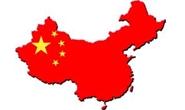Government/Policy

May 31, 2016
China Steelmakers Respond to Section 337 Investigation
Written by Sandy Williams
China steelmakers are denouncing charges of wrong doing levied by US Steel in its Section 337 filing.
The ITC said last week that it will pursue the investigation that charges Chinese steel producers stole trade secrets, engaged in price fixing and participated in transshipment and duties evasion.
One of the respondents in the investigation, Wuhan Iron & Steel, said it has always obeyed the World Trade Organization’s principles of fairness, transparency and mutual benefits to conduct international trade.
“We don’t dump and we are against dumping. We take a proactive stance in international anti-dumping lawsuit that we are involved in. The company has won a number of cases in this regard,” said Wuhan Iron & Steel spokesperson Mei Yun.
Baosteel vowed it would defend itself in accordance with international regulations and laws. The company denied allegations by US Steel and called them groundless.
Zhang Tieshan, an analyst at China’s Mysteel.com, said Baosteel does influence pricing because it manufactures half of the steel sheet used by China’s auto industry, but it cannot be labeled as price-fixing.
“Just like the three key iron ore miners have a say in determining the iron ore price, so does Baosteel have a say in steel prices. When they jointly raised the iron ore price by up to 70 percent on an annual basis in the past, there was no accusation of price-fixing by Chinese steel makers as they understood output influences pricing,” said Zhang Tieshan.
The research director at Beijing Lange Steel Information Research Center said that Baosteel’s R&D over the past three decades has resulted in “steel products of high standard.”
An executive with Maanshan Steel told Reuters, “The U.S. steel industry has already lost its leading position and there is nothing worth stealing. The United States is a market economy and we don’t understand why they are taking these measures.”
“The United States said we conspired,” added the executive, who asked not to be named. “In fact, we wish the domestic steel sector was able to work together, but this is precisely what we are the worst at, and it is even less possible that we would distort the market through government action.”
On US Steel’s accusations of transshipment of products, Xu Xiangchun, an analyst with Shanghai Ganglian Holdings, said, “As a State-owned company with good reputation internationally, all the products of Baosteel are standardized according to their origin, so the complaint of mis-stating the origin of products is ridiculous.”
The China Iron & Steel Association (CISA) expressed their support for China steelmakers: “We strongly urge the Chinese government to take counter-measures against the United States to safeguard the legitimate rights and interests of Chinese steel industry and the normal trade order.”
The Chinese Ministry said it “resolutely opposes” the ITC investigation. The Ministry has called trade actions by the U.S. “protectionism” and said they would interfere with trade rather than solve the industry’s problems.







